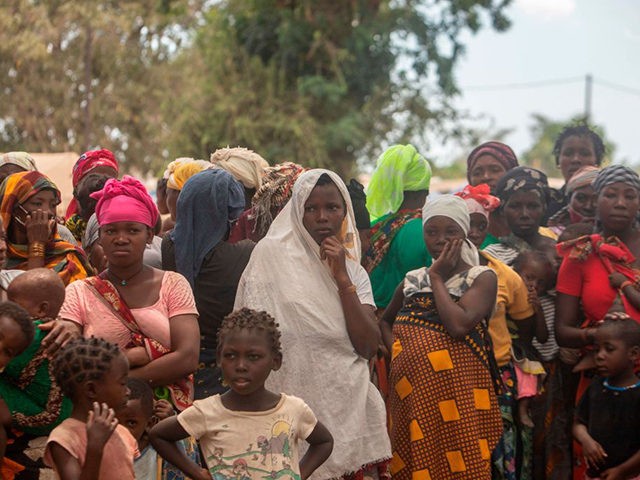The United Nations High Commission for Refugees (UNHCR) said Monday that jihadi attacks in northern Mozambique have prompted at least 424,000 people to flee their homes, devastating a region that was only just beginning to recover from Cyclone Kenneth in 2019.
UNHCR warned the conflict could spread beyond Mozambique and create even more refugees.
“This is a situation starting in one country but if all the countries don’t get their act together to tackle it and wait too long, it could spread within the sub-region,” UNHCR’s chief for southern Africa, Valentin Tapsoba, told Reuters on Monday.
U.N. High Commissioner for Human Rights Michelle Bachelet called the situation in Mozambique “desperate” last month and said it was vital for local authorities to ensure humanitarian agencies have “safe, unhindered access to deliver live-saving assistance and protection,” particularly in light of the coronavirus pandemic.
Bachelet said the United Nations believes thousands are trapped and “hiding in the bush” in northern Mozambique, driven from their homes by the depredations of the Islamist insurgency but terrified of “being killed, sexually abused, kidnapped, or forcibly recruited by armed groups” if they emerge from hiding to flee south.
Northern Mozambique boasts billions of dollars in oil and gas deposits, major international corporate efforts to access those resources, large numbers of impoverished local residents, and a jihadist insurgency that began as a populist uprising several years ago then developed ties with the Islamic State and grew increasingly savage in character.
Mass beheadings and vicious attacks on villagers in November drew more international attention to the insurgency, which has grown beyond the ability of either the Mozambican government or foreign security contractors to fully suppress.
The government of Mozambique began an international appeal Friday for funds to help refugees from the northern Cabo Delgado region. According to Tapsoba, UNHCR has only a third of the $19.2 million it needs to feed and shelter the refugees in 2021, and he predicted the coming rainy season would make an already difficult situation into a “nightmare.”
Leaders from Zimbabwe, South Africa, and Botswana met in the Mozambican capital of Maputo on Monday to discuss cooperation on the insurgency. Tanzanian security forces announced they would begin joint operations with Mozambique in late November, in response to an October attack on a Tanzanian village by rampaging insurgents from Cabo Delgado.
Last week, U.S. officials said they were concerned about the deteriorating security situation in Mozambique and offered American assistance to “contain, degrade, and defeat” the jihadis. Russian mercenaries are also reportedly on the scene and have allegedly suffered significant casualties from fighting the insurgency.
The president of Mozambique, Filipe Nyusi, has yet to formally request military support from other nations against the militants, who reportedly have about 3,000 fighters.
Many of the refugees from Cabo Delgado have pushed south into Pemba, a port town with a population of 205,000 that now hosts over 130,000 displaced people.
Pemba officials said the pressure on health, sanitation, and transportation infrastructure is becoming a “huge challenge,” and also warned their overextended police force lacks the manpower to screen terrorists out of the incoming refugees. Local residents told AFP on Monday that people arriving by the boatload from northern Mozambique are simply bribing the police and entering Pemba without security checks.
“They attacked my village and took my daughter. I came to Pemba and was welcomed by a family here. I still haven’t forgotten what happened. I do not sleep. My head hurts. I think they should stop this war,” a refugee told AFP.
Mozambique’s gas deposits are so important that they were one of the few exceptions to a U.K. policy of ending overseas oil and gas projects to combat climate change announced by Prime Minister Boris Johnson on Monday.

COMMENTS
Please let us know if you're having issues with commenting.